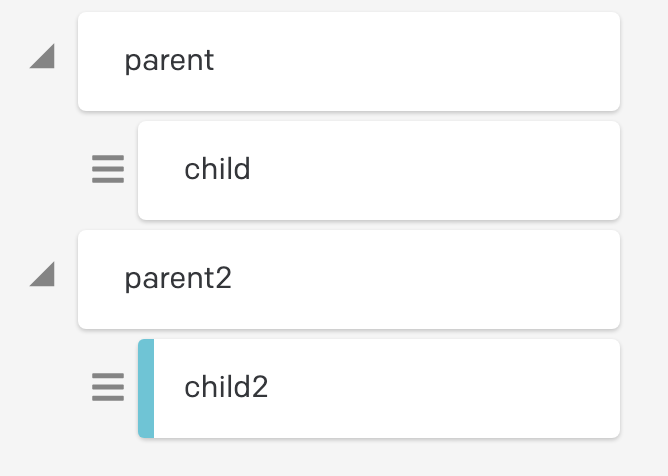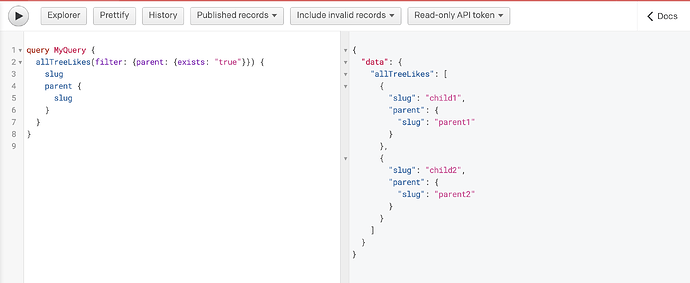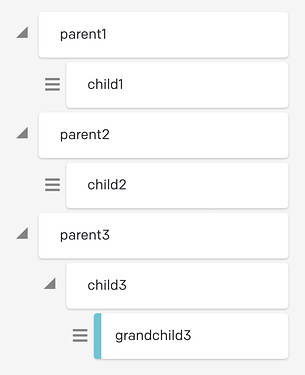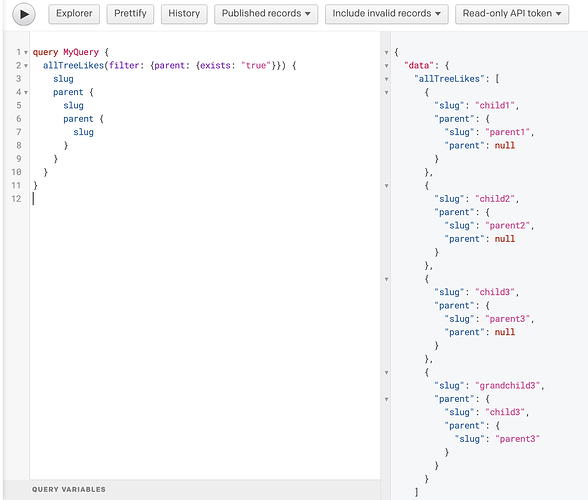@david.hewitt
I think i have the exact solution for what you need, first here is one for fixed tree-depths, and a possible work around for dynamic tree-depths in the bottom of the post as well.
First, lets start with a structure of a tree with a fixed depth of one:

Now, if i want to generate the slugs for each child in the format “parentSlug/childSlug”
I can simply do the following query:
query MyQuery {
allTreeLikes(filter: {parent: {exists: "true"}}) {
slug
parent {
slug
}
}
}
That will give us the following result:
Now, on the getStaticPropsFunction i can just build the slug by accessing this response and parsing it with a similar code:
for(const slugObject of response.data.allTreeLikes){
return `${slugObject.parent.slug}/${slugObject.slug}`
}
Now, for dynamic tree depths, lets use this example, with a three of depth 2 now added to the previous example, making 2 trees of depth 1 and one tree of depth 2:
We now will use a modified version of the query, that asks for the parent slug as many times as the max depth of all trees (in this case, 2 times, as the max depth is 2)
query MyQuery {
allTreeLikes(filter: {parent: {exists: "true"}}) {
slug
parent { //parent depth-1
slug
parent { //grandparent depth-2
slug
}
}
}
}
This will cause the trees that don’t have a grandchild to return a null in the last “parent slug” response:
You can still use the above “for loop” to iterate through this response and generate the slugs, however, now you would have to add some NULL checking to avoid the generation of invalid slugs for trees with depth < 2



